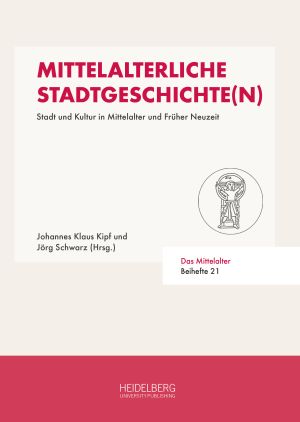How to Cite
License (Chapter)

This work is licensed under a Creative Commons Attribution-ShareAlike 4.0 International License.
Identifiers (Book)
Published
Der Beitrag der Literatur zum Leben der deutschen Stadt des Spätmittelalters
Abstract This article tries to answer how and to what extent literature – in the broadest sense – responds to challenges within rapidly growing societies such as cities, a question which is pursued by evaluating the example of Brunswick in greater detail. To this end, we especially examine producers of literature such as city writers, politicians, schoolteachers and clergymen, but also recipients of literature as well as specific works, genres and themes. The nature of civic reading and writing is characterised by means of private collections (by Gerwin von Hameln, Hans Porner and others); other aspects which need to be considered here include Carnival plays and historic songs as well as their reception. By looking at the convent of St Ägidien and its sermons, saints’ biographies and writings which propagated the St Auctor cult, we see how the clergy contributed the most to literary life in late medieval cities. Specialist literature by doctors, barbers, etc. with literary ambitions are not limited to a city audience, since these works belong to functional literature, as do cleri cal or catechetical literature (plenaries, psalters), and they are texts which most likely were the object of 15thcentury civic reading. This literature conserves existing, orally trans mitted knowledge and significantly increases the number of people who have access to it – all of this being reinforced even more by the opportunities of printing.
Keywords Brunswick; literary life; producers of literature; cult of St Auctor






